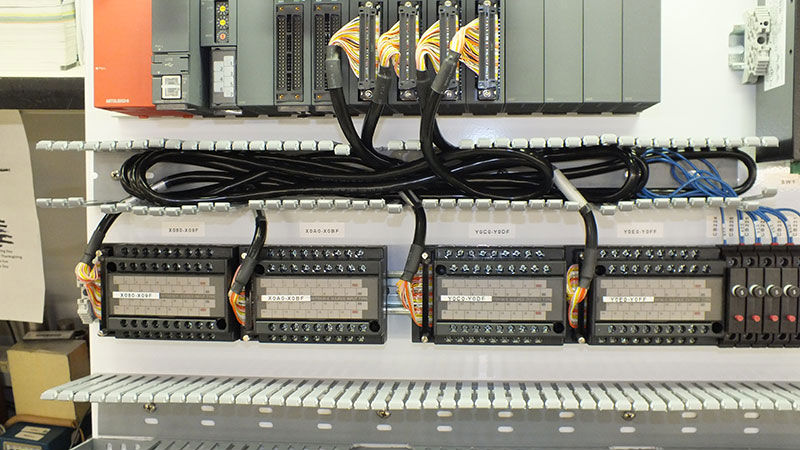Have you ever wondered how electrical control panel design works? Control panels play a vital role in commercial, industrial, and residential applications today. In fact, they are able to create an artificial intelligence with items like timers, contractors, relays and the principle of electricity and electromagnetism. Here are the basics of this design, to give you a better idea of what goes on behind the scenes.
Many of today’s electric panels are made to assist with industrial motor operation. In fact, they are sometimes referred to as motor control units. Electrical control panel design may include controls for several motors and these motors can drive conveyors and perform a number of jobs in a manufacturing facility.
A Typical Control Panel
Here is how a typical control panel might work. You might need to stop, start or pause, a wide range of machinery in the area. To make it easier and more convenient for the machine operator, all the controls can be placed in one area. Panels may include stop/start buttons, limit switches and other controls. Many controls today are automatic and allow the operator to view their functions from a display screen.
Indicator lights are a common component of electric control panels. They let the operator know if a piece of equipment is running or not. Most engineers today understand the need for energy efficiency and modern electrical control panel design includes LED indicator lights. Not only are these lights more efficient, they can last as long as 50,000 hours.
LED lights do not generate heat and in areas like computer rooms, heat is a huge consideration. For example, several rows of indicator lights can generate enough heat to raise the ambient temperature in a small room by one or two degrees. This can be enough to increase the need for air conditioning.
Installation Factors
Part of the designing process includes how the panels will be installed. For example, space is a major consideration so panels may need to be specific shapes. In fact, some are custom designed to fit into industrial applications. By saving space, one can place many controls into one single panel and simplify the process of automation.
Code Requirements
One of the most important factors to consider is code issues. Electrical control panel design must take into consideration the latest electrical codes and ordinances when manufacturing control panels. The modern engineer must keep up with all these code updates and consider the country in which the panels will be used.







